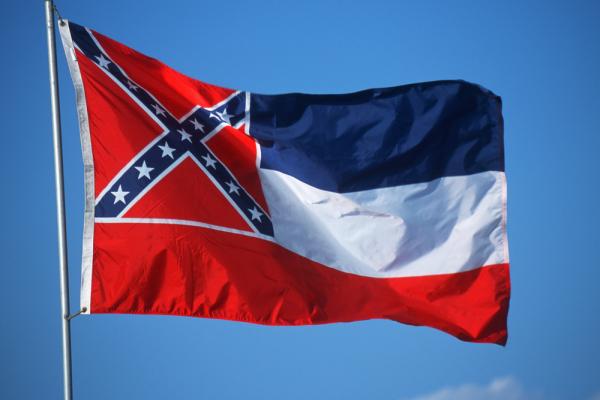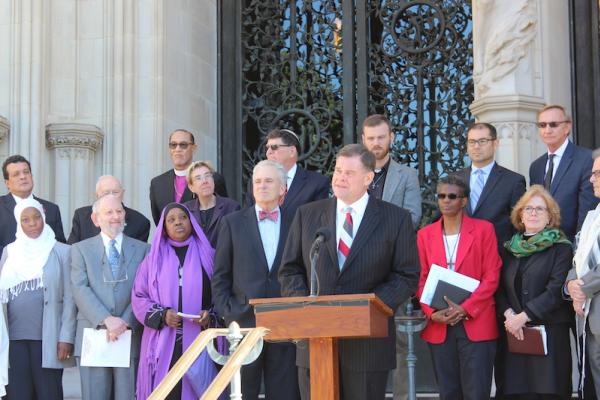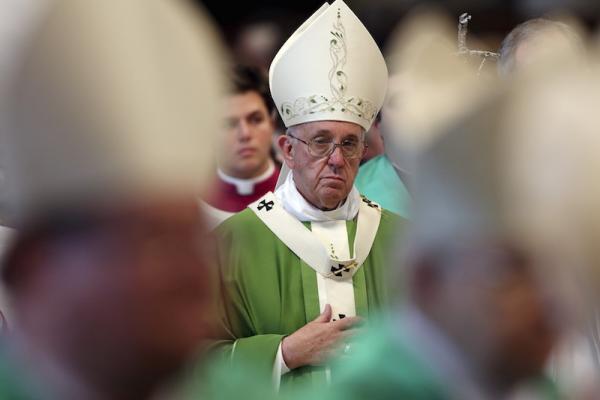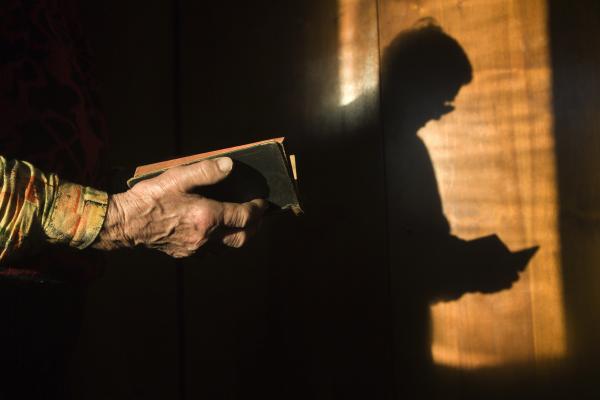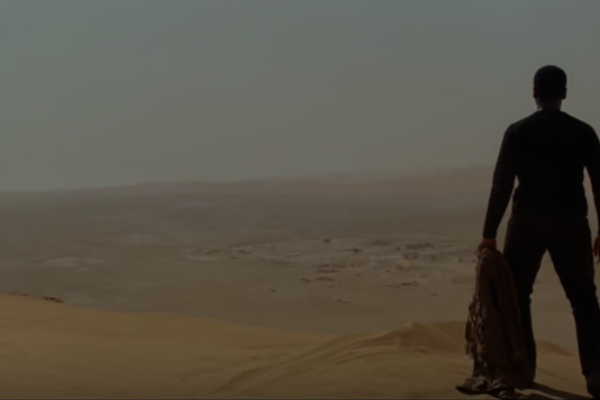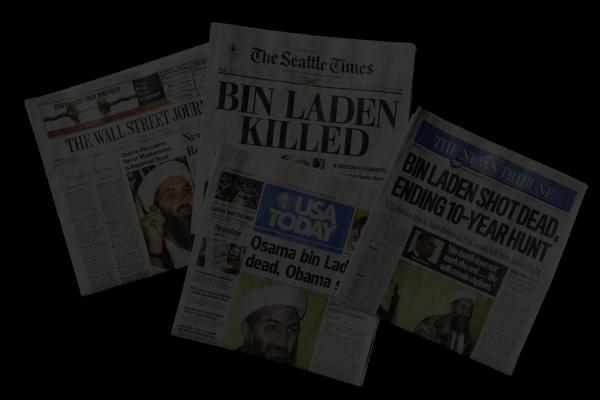Today (Oct. 26) marks the fourteenth anniversary of the passage of the Patriot Act, an initiative designed to strengthen the U.S. government’s ability to monitor and deter potential terrorist threats.
Though key provisions of the Patriot Act expired earlier this year, many of them were restored by the Senate via passage of the USA Freedom Act, and will be effective through 2019. At the same time, the Senate also voted overwhelmingly to end the NSA’s unmonitored mass surveillance and data collection of phone and email records, formerly justified under the language of the Patriot Act.
Campus police officers at the University of Mississippi removed the state flag from its campus this morning, days after resolutions from the student body, staff, and faculty urged such action, according to a press release from the University of Mississippi.
It is the first predominantly white institution of higher education in the state of Mississippi to ban the flag.
The student senate was the first to pass the resolution, after 3 hours of "respectful and impassioned debate" culminating in a 33-15-1 vote in support of removal.
A majority of evangelical pastors consider Islam to be “spiritually evil,” according to one just-released poll, but on Oct. 23 an evangelical pastor and an imam took turns talking about their friendship and mutual respect.
Texas Pastor Bob Roberts and Virginia Imam Mohamed Magid joined dozens of other religious leaders in prayer at the Washington National Cathedral before signing a pledge to denounce religious bigotry and asking elected officials and presidential candidates to join them.
“I love Muslims as much as I love Christians,” said Pastor Bob Roberts, of Northwood Church in Keller, Texas, before leading a prayer at the “Beyond Tolerance” event.
“Jesus, when you get hold of us, there’s nobody we don’t love.”
The most significant and contested gathering of Roman Catholic bishops in the last 50 years formally ended on Oct. 25 after three weeks of debate and dispute, but the arguments over who “won” and who “lost” are only beginning.
The synod of 270 cardinals and bishops from around the world was the second in a year called by Pope Francis to address how and whether Catholicism could adapt its teachings to the changing realities of modern family life. Traditionalists had taken a hard line against any openings, especially after last October’s meeting seemed to point toward possible reforms.
While the delegates made hundreds of suggestions on a host of issues, two took center stage, in part because they represented a barometer for the whole question of change: Could the church be more welcoming to gays, and was there a way divorced and remarried Catholics could receive Communion without an annulment?
For me, the question of what to do with Yoder is not only an academic issue but a personal one. I was Yoder’s graduate assistant — and would be his next-to-last — for two years. Academically, how I teach my “War and Peace in the Christian Tradition” course is indebted in great extent to what I learned from him. As evident in numerous footnotes, my scholarship and publications, including for Sojourners, over the last two decades on just war and just policing also owe a lot to both his research and his mentoring.
Nevertheless, after this semester, I am leaning towards Blanton’s recommendation of setting Yoder’s work aside, at least for the foreseeable future. I think it is now possible to rely on the work of others for persuasive defenses of nonviolence and for strong critiques of Niebuhrian realism. I struggled over whether to use one of his books or essays in my course this semester. I hesitated to say anything about Yoder’s misconduct to my students. It took me a while before I did so.
What to do with Yoder? I’m not sure.
I’ve noticed that when many white liberals are confronted with these numbers, and the racism that undergirds our privilege, we start feeling guilty. We generally have two choices in how we respond to our feelings of guilt: First, we can choose to become defensive. We start concealing our own racism by projecting it onto the overt racists who start Twitter campaigns that boycott Star Wars. In other words, we’d much rather take the easy way out of scapegoating. We’d rather blame the racists out there than do the difficult work of examining the racism that infects in each one of us.
But the more vehemently white liberals deny that we are racists, the more evidence we provide that that’s exactly what we are.
The second choice is to move beyond white fragility, by doing the difficult work of examining the racism within ourselves and our society. We can acknowledge that the racist structures that infect our country also infects us. We can choose to openly acknowledge the benefits we gain from racist societal structures. We can choose to work for political, economic, and educational reform that will lead toward greater racial justice.
Some evangelical leaders are disappointed by Donald Trump’s meeting with various faith leaders earlier this month.
Several prominent pastors met with the businessman and presidential candidate, who remains popular with evangelical voters, in Trump Tower in New York City, N.Y.
According to Christian Today, a number of evangelicals are critical of Trump’s attempt to get in touch with the evangelical constituency because they say that the faith leaders invited to the meeting are those who endorse prosperity gospel theology.
"The people that Trump has so far identified as his evangelical outreach are mostly prosperity gospel types, which are considered by mainstream evangelicals to be heretics," Russell Moore, president of the Ethics and Religious Liberty Commission of the Southern Baptist Convention said.
Displayed over a blurred image of Osama bin Laden, the headline on the cover of The New York Times Magazine for October 18 reads, “Do we really know the truth about his death? The mysteries of Attobad.”
Weirdly, the article is not an investigation of the truth about bin Laden’s death — it’s an investigation of other investigations. Jonathan Mahler decided to report on two competing narratives about the raid in Abbottabad. His article is a soul-searching reflection on how we can know which version of events is true, or if the truth about our government’s actions can ever be known at all.
After reading his article, it’s fair to wonder if we ever will. If our concern is to learn the facts of the raid, we may easily get lost in a tangle of facts and lies. But that is a truth in itself — a truth of how violence works to destroy the truth.
We need to state the obvious here: the subject of all this reporting is a death by violence. The subject of this story is not the truth. The subject is violence itself.
1. Nurses, Fathers, Teachers, Mothers. Why Do We Devalue Someone the Minute They Care for Others?
"That work of investing in others is actually just as important as the work we do for money. I now look at my mother’s work as a homemaker as well as her work as an artist, and I say, ‘Those things are equal.’ I didn’t believe that three years ago."
2. Do You Think Science and Religion Conflict? Probably Not, if You're Highly Religious
Yep, you read that right. Polls show many people may think science and religion conflict in the abstract, but far fewer think so of their own religious beliefs.
3. Secular, But Feeling a Call to Divinity School
“I didn’t feel unwelcome, but I did feel like it was a call to creativity,” Ms. Thurston, 30, recalled of her initiation. “I wanted to respond to what I saw as a crisis of isolation among young people.”
4. 'Star Wars' Lets Princess Leia Age Realistically. Thank You, Hollywood
Actress Carrie Fisher (Princess Leia) on working with members of the original Star Wars cast: “We all look a little melted. It’s good to see other melted people.”
The overriding interest in the global meeting of Roman Catholic bishops that finishes here on Oct. 25 has centered on whether the churchmen will actually do anything in the end — as in vote to make changes in church doctrines or policies — or leave well enough alone.
In reality, the gathering of 270 bishops from around the world, called a synod, has no authority to legislate doctrinal or other changes, and wasn’t expected to try anything that bold anyway.
Its real purpose — thanks to reforms instituted by Pope Francis — is to discuss issues openly and frankly, and to advise the pontiff about what they think the church ought to do about the challenges facing families today, or, as is likely the case for this divided synod, to kick the hard questions upstairs for him to decide.

